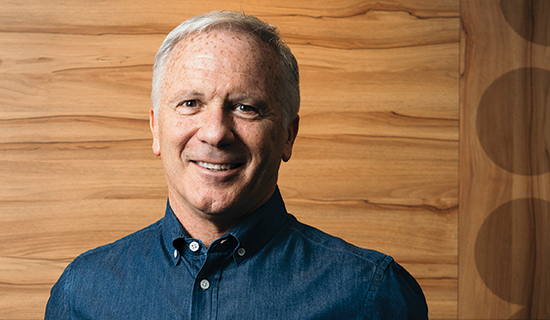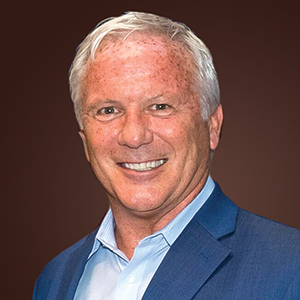The restaurant industry is known for handling complex issues, but COVID-19 has taken that to another level.
“I’m working harder than I ever have,” says Donatos Pizza President and CEO Tom Krouse.
For example, before the end of Gov. Mike DeWine’s Sunday, March 15, news conference that closed restaurant dining rooms throughout Ohio, Donatos communicated to its system though an automated text and voicemail. The company developed and finalized its plans by midnight, which it then implemented Monday morning.
That need to move quickly and collaborate has remained critical throughout the pandemic.
As Donatos raced to set up standard procedures, fear and anxiety hung over the company. However, Krouse says, the employees rose to the challenge, showing the value of working together, doing the right thing and not looking for shortcuts that jeopardize their health or the health of their customers.
“I really saw that positive energy that we always knew was there, but it came out even brighter,” he says.
A changed world
The world is vastly different than when Krouse stood on stage at the Red Robin national convention in New Orleans at the end of January. (Donatos pizza is sold in nearly 50 Red Robin locations.)
Before the pandemic, the casual-dining chain planned to shake up its menu by bringing pizza — via Donatos — to 100 restaurants in 2020, and then 150 each in 2021 and 2022, in a franchise-type deal. Those growth plans are now on hold. Also in January, Donatos’ sales were up double digits and the company had introduced a cauliflower crust pizza that was doing well.
Then, boom. The world stopped.
“Everybody was a bit shell-shocked — customers were, at least,” Krouse says.
As Donatos added contactless delivery, optimized its curbside pick and added technology to its pick-up windows, the business built back its sales. Pick-up services grew more quickly than delivery, and the average check size increased significantly as families ate together.
By the end of April, Donatos reached one of its highest sales weeks in the company’s history, despite the fact that its catering business had all but dried up.
“In a very strange way, we’re fortunate; certainly, fortunate to be in the pizza delivery business because it’s been one of the categories that’s been strong,” Krouse says.
As restaurants reopened, Krouse expected the demand to spread back out among all eateries. However, Donatos has already opened four stores since the pandemic hit the U.S. and plans to open nine or 10 new restaurants over the next 12 to 18 months. The company’s franchise program is also getting more interest because the business model is viewed as resilient to recession.
Another bright spot is the fact that businesses can plan ahead for challenging times.
“Most recessions, you find out six months into it that you’re in a recession,” Krouse says.
In order to plan the right value tactics, Donatos’ executive team spent time reviewing the last recession. What did the balance sheet look like? What was the cash position? How did sales and profits trend? What worked? What didn’t?
“There are a lot of ways to do value tactics,” he says. “Some are damaging to long-term profits and some help you get through difficult times by offering the right customers the right kind of value.”
Stepping up
While it’s difficult to make concrete plans in a dynamic sales environment where a recession may or may not be looming, the bigger challenge has been balancing people’s desire to have a job with their personal safety.
Krouse says these may sound like competing objectives, but they’re both equally important, and he’s tried to deal with it in a straightforward manner.
“It’s not a political issue,” he says. “It’s not about civil liberties. It’s about physical safety. It gets emotional.”
In a crisis with no easy answers, it’s important to not be paralyzed to the point where you’re pulling back to try to figure out the perfect solution, Krouse says. You can’t be so shocked by the changes, issues and questions to be answered that you go into a hole to try to figure things out.
“That gap in time only creates fear and anxiety among people who already have fear and anxiety,” he says. “So, if you’re faced with a situation that causes fear, talk to the organization — even if the answer is, ‘I don’t know the answer.’”
“No comment” is never a good idea, so lean into the situation. Don’t let too much time pass in silence.
“You don’t have to have all the answers,” Krouse says. “But just being there brings comfort, and comfort in a lot of cases creates a sense of connection. That’s what you need in dark times like this. That’s when we think more clearly. That’s when we act more clearly.”
Connect across all channels
Helping people, whether employees or customers, deal with strong feelings requires more communication on the part of Donatos. Krouse wants people to see what the business is doing and why, which can bring a sense of calm. In fact, he views his role as moving from CEO to CCO — chief collaboration officer and chief communications officer.
“The theme really is being open, being transparent, building plans together, listening and then communicating over and over and over again,” he says. “We’ve gotten a lot of feedback from our franchise partners and our company associates that they have appreciated the level of communication and how we’ve leaned in.”
Krouse makes sure people have a voice, while the Donatos executive team stays clear about what it knows and what it doesn’t.
“What people want to know is that we understand the pain that they’re dealing with, that we understand it at every level in the organization, and that we’re interested in their well-being,” he says.
Systemwide communication is done through a biweekly video call, and Krouse and his wife, Chairwoman Jane Grote Abell, have created a number of videos together. The operations council talks every morning about customer sales and employee safety. An advisory council of key franchisee partners meets one or two times a week to vet ideas with experienced operators.
Employees or franchisees with specific safety concerns can contact Donatos corporate via a hotline or email. Krouse says they are sure to respond with either, “We’ve heard it, but we’re going in a different direction,” or “Yes, we’ll incorporate it into our plans.”
Donatos also has leaned heavily on the Ohio Restaurant Association, which has a clear line of communication to the governor’s office.
“I was teasing (ORA President and CEO) John Barker the other day because I think I talk to him three times a week,” Krouse says. “I said, ‘You guys should increase your fees because you’ve earned your keep this whole crisis.’”
Working together
In addition to communicating often and clearly, Krouse has focused on keeping Donatos’ culture and energy on track as people work and interact differently.
“I’m old school,” he says. “I like to look people in the eyes physically and meet as a group.”
Initially, Krouse was worried Donatos wouldn’t be able to have the level of fun it likes to as an organization. However, while the interactions look different, the company has found ways to come together.
A virtual happy hour pizza party featured a local musician who played an original song he wrote about the COVID-19 crisis. Donatos also brought pizza to frontline health care workers and undertook one of its largest orders when Kroger had the company deliver $50,000 worth of pizza to all of its grocery store employees.
In addition, some of the heightened sanitation practices and a wider array of curbside pickup services are likely to become staples of the business, even after the pandemic is over.
Krouse knows the company needs to continue to celebrate the good things, even if that celebration takes a different format. For instance, when one general manager had an anniversary and another retired, Donatos held socially distant celebrations, where people drove their vehicles through the drive through or stood carefully 6 feet apart.
“Even though it was awkward, I think it meant so much to them that we made that effort,” Krouse says. “Celebrating your people in times of crisis is also a way to bring some sense of normalcy. It’s not all about fear and panic. Life can be joyful, too.”
TAKEAWAYS
- Lean into the crisis; just being there may be answer enough.
- Make sure people have a voice and know what’s going on.
- Don’t forget to celebrate in the midst of dark times.
NAME: Tom Krouse
TITLE: President and CEO
COMPANY: Donatos Pizza
Born: Bowling Green, Ohio
Education: Bachelor of business administration, The Ohio State University
What was your first job, and what did you learn from that experience?
I shined shoes and cleaned toilets at a golf course. One thing I learned is that I’m a people person, and just sitting alone in a men’s locker room was not something I could deal with very well.
What’s the best business advice you’ve ever received?
Do the right thing. You don’t always need to do the most efficient thing; you want to do the right thing. It might take more work. It might take more time. It certainly takes more understanding and listening, but don’t cut corners. Dave Thomas taught me that when I worked at Wendy’s.
Where might someone find you on the weekend?
Music is a big part of my life — I play in a band called Grassinine. I like playing music, exercising and being with my family.
How has Columbus’ music scene evolved over the years?
We have a wide range of music in Columbus. It’s not like there’s a sound, but there’s a broad range of people who work together well. We’re slowly but surely building that scene here in Columbus. It’s an important part of the cultural vibe of a city.
(The city) has bands like Caamp, who just a few years ago played in front of a handful of people and now they’re hugely popular and selling out crowds.
And Twenty One Pilots is two Columbus kids. Actually, the drummer worked at our Donatos shop in New Albany when he was 15. I think he’s making a little more than he did back then.


